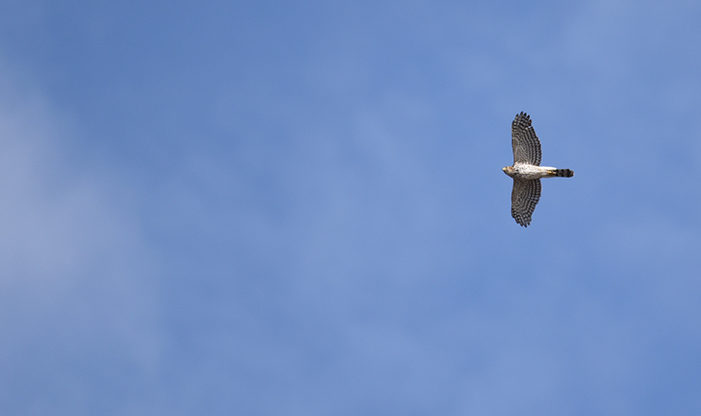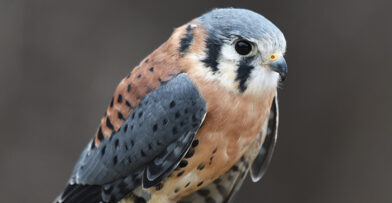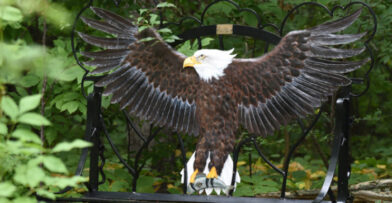Raptors are beneficial because of the numerous ecological services that they provide. They help reduce the spread of diseases by controlling rodent populations and by removing carrion from the environment. Birds of prey also serve as key indicators of environmental contamination. Helping to conserve large, apex predators may seem intimidating to some, but keeping raptor populations healthy is an important job for everyone, not just for researchers or wildlife professionals!
Save Your Apple Core for the Garbage Can
One thing you can do to help conserve raptors is properly dispose of trash. While some garbage such as apple cores and banana peels are biodegradable, tossing them out your car window could create a potentially deadly situation for many animals, including raptors. These items attract rodents and other prey animals to the road, and larger birds begin to associate roadways with an easy meal. Owls are particularly susceptible to road collisions as they commonly fly at the same height as vehicles.
Plant Native Species
A significant problem facing raptors in urban landscapes is the loss of both habitat and native plant species. Adding native plants to your garden is very beneficial to raptors. It creates habitat by providing cover, and also reduces the need for pesticides that could potentially contaminate the food chain, attracting native insects and reliable food sources. While raptors don’t directly rely on plants for food, they may rely on other animals that do. Healthy biodiversity means healthier ecosystems, and seeing a hawk or owl is a sign that an ecosystem is thriving.
Skip the Rat Poison
Another simple way to help conserve raptors is to let them do what they’re best at – hunting! A family of Barn Owls can hunt over 1,000 rats in a single year. Unfortunately, rodenticides and rat poisons are lethal to pets and wildlife alike and often don’t work for 3-14 days. An infected rat could easily be eaten by a predator after it has consumed a poison. Owls frequently die after eating poisoned rats. Allowing these wonderfully skilled hunters to manage pests for you is an easy way to participate in their conservation.
Switch from Lead to Copper Sporting Gear
Lead is the most used metal in hunting ammunition and fishing tackle. Lead bullets fragment into hundreds of pieces upon impact. When eagles and other scavengers consume carrion left on the landscape or catch a fish that has encountered lead tackle, they ingest a potentially deadly meal. Even at very low levels of lead exposure, birds show signs of toxicity, including neurological impairment, seizures, weakness, and death. Switching from lead to copper-made bullets and fishing tackle can save some of our most beloved native raptors, like Bald Eagles and Osprey.
Support Raptor Focused Organizations
One final way to help raptors is to assist organizations that support them through research, rehabilitation, or education. Memberships to wildlife organizations, donations, volunteering, and even attending educational programs can benefit raptors.
Consider participating in activities to further the conservation of our beloved raptor species so that future generations can continue to appreciate their power and beauty.


